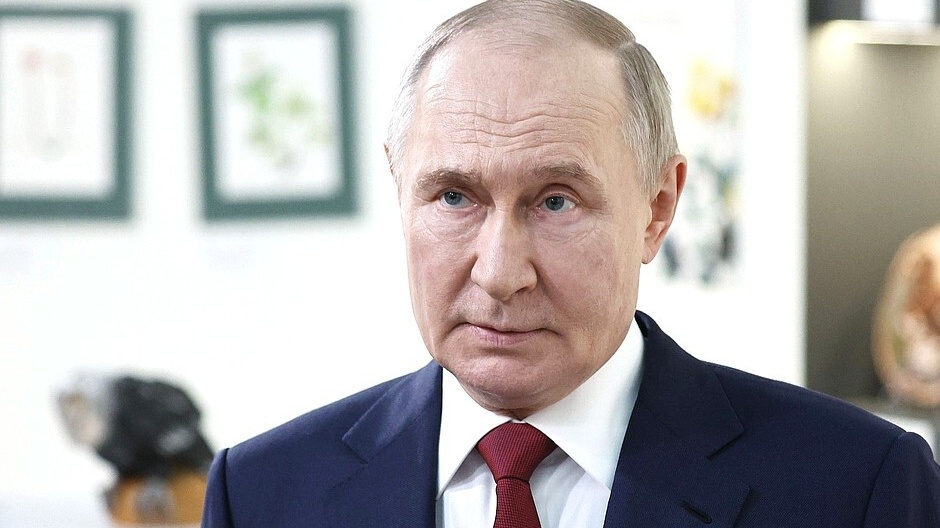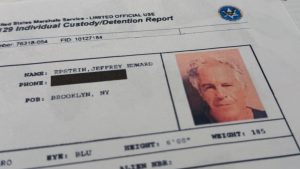How Vladimir Putin’s ‘chess moves’ are reshaping the global order

As Russia’s war against Ukraine continues, the Russians have begun pushing other border boundaries, interfering in foreign elections and cozying up to new allies. What do all the latest moves from the Russians mean and what could come next?
War on Ukraine
On Feb. 22, 2022, Russia began a full-scale invasion of Ukraine. Since then, roughly 70,000 have been killed on the Ukrainian side with around 120,000 killed on the Russian side.
Russian President Vladimir Putin said his country launched the biggest European invasion since World War II to “demilitarize and denazify” Ukraine. Putin said he needed to protect Russians, including those in Ukraine, from the Kyiv regime.
Putin also said he wanted to prevent Ukraine from joining NATO, where western troops could get closer to the Russian border.
“His main goal is to undermine the United States of America, to undermine democracies in the world,” Leon Panetta, former U.S. Defense Secretary and CIA Director, told Straight Arrow News.

Ukraine represents just as important a territory in Putin’s vision for Russian expansion as much as it would be a costly loss to see them join NATO.
“Putin has always wanted Ukraine, and he’s got, he’s got many of the parts he wants,” (Ret.) Air Force Lt. Col. Rick Francona, told SAN. “He wants the Donbas. He’s sitting on that right now. Most of it.”
President Donald Trump promised to end the war on day one of his presidency. Ten months in, the war rages on.
Trump has maintained a relatively friendly relationship with the Russian president. However, he has expressed his frustration with Putin, including restarting nuclear weapons testing as a warning to Moscow and issuing sanctions on two large Russian oil companies.
Earlier in the year, Putin angered Trump by attacking Ukraine as the U.S. attempted to broker a peace deal.
“Everything I know about Putin, both from intelligence as well as my own experiences, is that Putin cannot be trusted,” Panetta, who served under former President Barack Obama, said.
Trump has also talked about a trilateral meeting between himself, Putin and Ukrainian President Volodymyr Zelenskyy.
“We need to give Putin an off ramp some way to get out of Ukraine,” Francona said. “I don’t think he’s going to get that from Donald Trump. Trump wants him to come to the table and make some sort of concessions. And, of course, the big problem there is you gotta have Zelenskyy make concessions too.”
Violating NATO airspace
As mentioned, one of Russia’s concerns is over Ukraine joining NATO. Putin has started pushing boundaries with some core members of the organization.
“I think this is kind of uncharted territory at this point,” Roger Reese, a history professor who specializes in war & society research at Texas A&M University, told SAN.
Several NATO member countries — Romania, Poland, Denmark and Germany — have reported Russian drone incursions, while Estonia saw Russian jets breach their airspace.

“Putin is going to use these different chess moves in order to test whether or not there really is a willingness on the part of NATO, on the part of the United States, to stand up to him,” Panetta said.
NATO has pushed back, including launching Operation Sentry to boost NATO’s posture along the eastern flank, and they’ve discussed shooting down Russian aircraft.
The government of Lithuania, a NATO member, said it will begin shooting down unidentified balloons that enter the country’s airspace from Belarus, a country closely tied to Russia.
“The United States and NATO countries have to stand up and draw a line on Vladimir Putin,” Panetta said. “This is not a time to back off. This is not a time to pretend he’s not the threat that he is.”
All this has naturally gotten the attention of other NATO members that share a land border with Russia.
“We can see from, for example, Pokrovsk in East Ukraine, what is the result if the fighting starts and the war starts,” Markku Kangaspuro, research director at the Finnish Center for Russian and East European Studies at the University of Helsinki, told SAN. “There is nothing left, and that’s the fate of Finland if war starts. We are the first country on the NATO front.”
Putin’s continued incursions into NATO countries have benefitted the alliance in some ways, according to Francona.
“Vladimir Putin has done more for NATO than anybody in recent memory,” Francona, who served in Vietnam and the Persian Gulf, said.
He pointed to member nations committing, at Trump’s assertions, to investing 5% of their GDP annually on core defense requirements and security spending.
“Only Vladimir Putin could have done that,” Francona continued.
Interfering in elections
Russia’s no stranger to interfering in elections, including in the 2016, 2020, and 2024 U.S. elections.
The Russians have also taken aim at European countries like Germany and France.
The most recent example came in nearby Moldova where the election was between rival European and Russian trajectories.
“From the moment the date of Moldova’s parliamentary elections was announced in April 2025, Russian influence operations began flooding the internet with false claims targeting Moldova’s pro-European president, Maia Sandu, and her party,” Eva Maitland, senior analyst of Russian Influence for NewsGuard, told SAN.
Russia reportedly invested heavily in the election with financial incentives to misinformation campaigns.
Why would Russia target Moldova, a country with a population of just 2.4 million people?
“[It] would disrupt Moldova’s EU integration process and promote the Kremlin’s goals in the region, including hostility towards Ukraine,” Maitland said.

Moldovan President Maia Sandu addresses the media inside the Presidential Palace following the parliamentary election, in Chisinau, Moldova, on September 29, 2025.
Final results showed the ruling Party of Action and Solidarity (PAS) winning 50.1% of the vote, while the pro-Russian Patriotic Bloc took 24.2%, giving PAS a decisive majority and reinforcing Moldova’s pro-EU path. (Photo by Artur Widak/NurPhoto via Getty Images)
It didn’t work, and Sandu’s party won.
But the misinformation campaign didn’t end on election day with campaigns claiming the election was rigged, another example of trying to undermine democracy.
“As is clear from the false claims after the election took place, the campaign is also aimed at promoting distrust towards the government and the democratic system,” Maitland said.
Finding new friends

That’s an image you may have seen a few times in the last year as Putin and Chinese President Xi Jinping have forged a closer relationship between their two countries.
Putin appeared alongside Xi at a Chinese military parade, along with North Korean leader Kim Jong Un.
“This is a moment in time when democracies are confronting autocrats,” Panetta said. “And autocrats have decided that it makes sense for them to work with each other and support each other as they’re trying to confront the rest of the western world.”
Chinese companies have reportedly helped Russia in the war against Ukraine.
“This war is actually very good for China,” Reese said. “They’re making money off it. They’re getting cheaper oil. They’re taking over abandoned western markets. But are they willing to get militarily involved in this? They would gain nothing by that, and so I think they’re going to be as friendly with Russia as it suits their interests and keeps them out of any real danger.”
Meanwhile, Russia has helped China with a potential invasion of Taiwan. China’s Foreign Minister has said they don’t want to see Russia lose to Ukraine on the battlefield.
Despite that, experts we spoke with all agreed it’s unlikely China enters the conflict.
“I don’t see the Chinese wanting to get involved in a conflict with anyone,” Francona said. “The Chinese want to take over, but they want to do it without having to fight to do it.”
That’s not the case with another ally, North Korea. Korean troops have joined Russian troops on the battlefield along with construction workers and engineers, and Kim Jong-un has supplied Russia with numerous arms. The Koreans have also given Moscow ammunition in its war effort against Ukraine.
Panetta sees all this cooperation as more of a convenience to each nation rather than true alliances.
“They don’t do alliances very well,” Panetta said. “Autocrats are autocrats. They don’t like to share. They don’t like to build friendships. They don’t like to rely on others, except if it benefits them in some way.”
What it all means
So, what is Russia and Putin’s goal with all of this?
“His principal goal is to advance Russia and try to restore the old Soviet Union,” Panetta said.
The other former military leader SAN spoke to agreed.
“I think Putin is trying to make themselves relevant again,” Francona said. “I talked to some people in St. Petersburg, and I asked them about that, and they love the guy of course, because he’s from there. And they said, ‘No, he’s bringing Russia back into the forefront.’”
Experts we spoke with said Putin’s other goal is to send a message to Western allies.
“I think it’s mostly posturing to show, NATO particularly and all its friends, that it’s not going to be intimidated, it’s not going to back down,” Reese said.
Whatever Russia is planning, it’s certainly a concern for the rest of the world.
“I’ve come to the conclusion that we live in a dangerous world, and the reason it’s a dangerous world is because there are a number of flash points in the world, probably more flash points since World War II, that can easily erupt into a greater conflict,” Panetta said. “Russia is at the top of that list with their aggression.”
The U.S. role
Every expert SAN spoke to highlighted America’s role in pushing back against Russian aggression.
“The United States has to wake up to the fact that this isn’t just about what’s happening in the cities of this country, it’s what’s happening throughout the world in terms of autocrats who are obviously endangering the hope for peace in the future,” Panetta said.

With Trump in the Oval Office, it’s not always clear what the U.S. will do.
“The perception is that the United States is unpredictable,” Kangaspuro said.
Some said being unpredictable can be a good thing, especially when dealing with someone like Putin.
“There’s that old theory that if you pretend to be crazy and people don’t quite know what you’re going to do, that becomes leverage,” Panetta said. “You can basically use that to get people to do what you want them to do, for fear that you may do something crazy. And there’s something to that. I think Trump has been doing that ever since he was a developer.”
Experts said it’s also very important for America to maintain its partnerships.
“Every president, whether they were Republican or Democrat, pretty much had the same principles when it came to foreign policy,” Panetta said. “They had different views, different approaches, but they had some fundamentals that they all abided by, and that was the importance of U.S. leadership, the importance of alliances, the importance of maintaining strong military strength, and the importance of doing what’s right in the world.”
Continued support of Ukraine also took priority for those we spoke with.
Since taking office, the Trump administration has, at times, withheld aid to Ukraine but has mostly continued to help the war-torn country defend its sovereignty.
“Maintaining the flow of arms and financial support to Ukraine is absolutely vital to the survival of Ukraine and to showing Russia that there is Western resolve, and it’s there for the long term,” Reese said.
Does that also mean having the U.S. military get involved on the ground?
“We’ve got probably the only serious military capability that the Russians would even think about being afraid of,” Francona said.
Despite that, Russia does have some leverage in keeping American troops off the battlefield.
“We’d have had boots on the ground already, but we’re not going to do that as long as he’s got 6000 nuclear warheads,” Francona said.
What comes next?
It’s been more than three years of war in Ukraine and bringing that war to an end remains a priority for the Trump administration.
While Trump has always touted his negotiation skills and pushed for meetings with Putin and Zelenskyy, peace has been a tough sell.
“There was one thing that the CIA intelligence people always made clear, which is, you cannot trust the Russians,” Panetta said. “I can remember the meetings at CIA where they would say, you can play nice, but deep down, you got to remember they’re going to screw you if they get a chance.”
Another looming question, what’s the next move from the Russians?
“As far as it’s preparation for something bigger in the future to take on NATO, I would be hesitant to go that far,” Reese said.
Kangaspuro agreed.
“I strongly doubt that Russia is going to attack Poland or Finland or even any Baltic States, not now and not next year,” Kangaspuro said.
In the meantime, Panetta said continued cooperation and dialogue will remain ever important.
“If you’re willing to work with people, if you’re willing to be involved, you can make good things happen,” Panetta said. “Otherwise, you’re basically rolling dice, and rolling dice in foreign affairs is not a smart thing to do.”
The post How Vladimir Putin’s ‘chess moves’ are reshaping the global order appeared first on Straight Arrow News.





